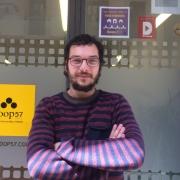
The financial institutions take people’s savings to contribute an added value to society as a whole and generate positive social impacts.
Ethical finances envisage a financial system that is geared towards developing a transformative, democratic, equitable and sustainable economic model. This is based on something both simple and powerful: including non-economic criteria when taking economic decisions. This really basic yet unusual reflexion in the field of finances, totally alters and turns around the logic and paradigm of financial activity.
The conventional financial system operates with the dogma and premise of maximizing profit. In financial activity, decision-making is almost exclusively done by assessing risk and profitability. Therefore, aspects deriving from loans or investments that especially affect people’s rights or preserving the environment and ecosystem are generally ignored.
This means, for instance, that environmentalist groups could be managing their money through institutions that fund mega projects that destroy the natural ecosystems that are essential for quality of life on this planet. Pacifist organizations could have their funds in institutions that invest in the arms trade, or organizations fighting for human rights or those of vulnerable people may end up with their money in the hands of financial organizations that invest in economic sectors such as the textile or technology industries, where workers’ rights are basically non-existent.
All of the above calls for the need to come up with a financial alternative that frees us of these possible contradictions and that allows us to meet our economic needs while being coherent and in line with our values. And that’s not all! This alternative should also encourage and support projects and organizations that take a critical approach to different realities and take the humble decision to change the world!
In other words, in recent decades, ethical finances have become structured around finding this alternative. Financial institutions that take people’s savings that would like to finance transformative projects that contribute an added value to society as a whole and that generate positive social impacts.
Today, we already have a fully developed ethical financial system that can meet the different savings and investment needs following the principles of a social and solidarity economy.
Therefore, the goal should be to rid ourselves of paradigms and understand that a financial institution may exist as a tool for social and economic development, instead of a tool only for profit. It is about rescuing the social value of money and placing it at the service of a sustainable development, that take into account aspects such as participation, transparency, social and environmental impact, the level of commitment with the environment and locally rooted, trust, proximity or mutual support. All of these aspects are not much related to figures, but that are essential to build an economic and social system conceived for the people and for our planet.
Furthermore, it is about doing it in a collective and participatory way. Finding the democratic financial tools that lead us to find economic sovereignty, regaining control and placing in our hands what we do with our money.



Add new comment